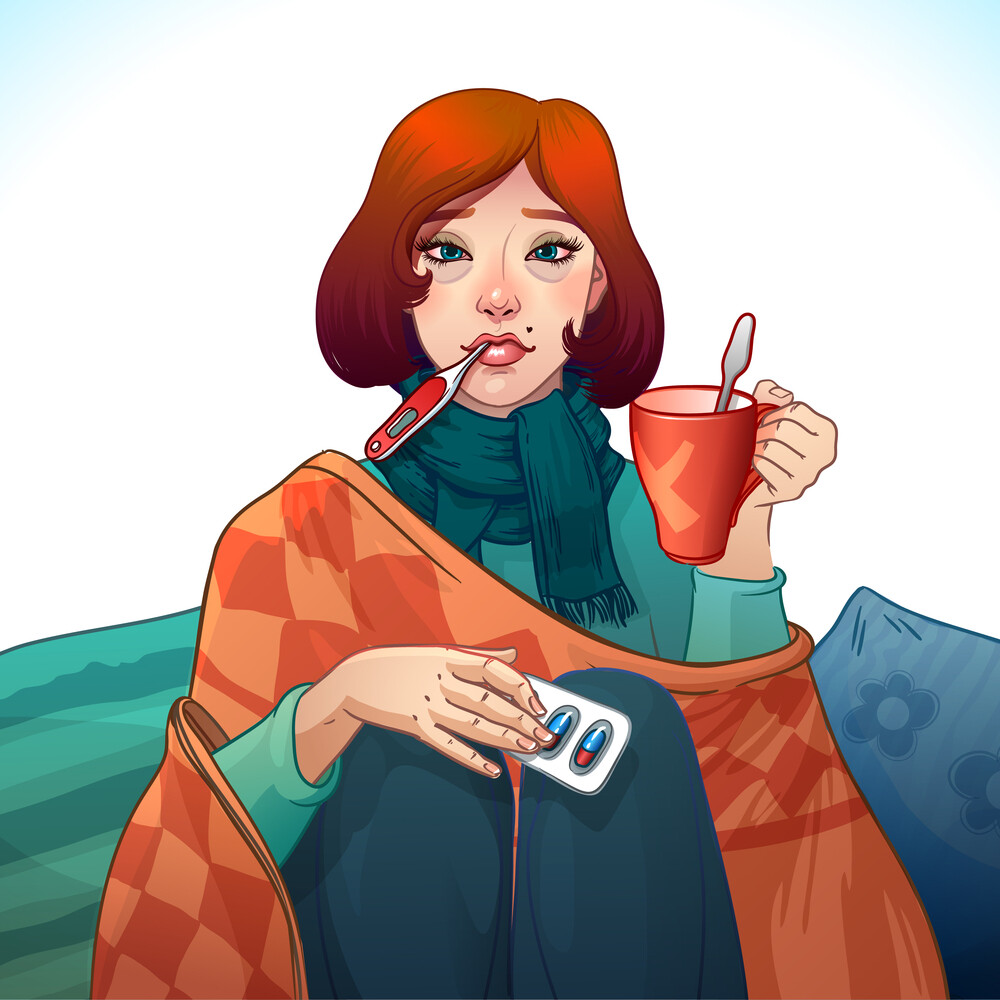If you want to prevent a cold, you need knowledge: How do I get infected and what can I do to stay healthy? Clarified: 10 popular mistakes about cold.
1. With me, cold viruses have no chance, I take herbal remedies all year round for my immune system
Taking extracts of the African geranium (umckaloabo) or echinacea preparations can actually strengthen the immune system. Provided you already have a cold. But they cannot prevent a cold. “The long-term effects on the immune system are not yet foreseeable,” says Professor Ruf from the German Society for Infectiology.
2. I got a virus from the air conditioning in the plane.
“Modern air conditioning systems should have filter functions that exclude this type of infection,” says Dr. Michael Deeg, spokesman of the German Professional Association of ENT Physicians. However, because of the ventilation system in the aircraft, it is often too cold. That’s why you should always take a thick sweater with you on board – and drink a lot. This can prevent a cold: the air from the air conditioning dries out the mucous membranes, so cold viruses can attack us more easily.
3. Cold viruses are much more aggressive today than in the past.
It is not our opponent who is stronger, but we have become weaker. “By living in closed, well-tempered rooms we are not used to much, we get blown away by every little change of weather”, says Dr. Rainer Brenke, Head of the Department of Naturopathy at the Hufeland Clinic Bad Ems.
4. If I keep my hand close to my mouth when I sneeze, I do not infect others.
Pathogens can fly up to five metres when sneezing. There are still enough viruses that can slip past your hand. The better protection: sneeze into a handkerchief. And even if you are healthy, you should wash your hands regularly. This reduces the risk of infection.
5. In cold weather you simply get sick quickly.
At low temperatures, the vessels of the respiratory tract contract, the immune system’s defence cells no longer reach their point of action as quickly, and the cold viruses can multiply accordingly unhindered. So should you ride a bicycle with a scarf in front of your mouth so that you don’t breathe cold air and don’t catch cold? “This is no guarantee against colds, but it reduces the risk,” says Dr. Brenke.
6. Yesterday cold, today 10 degrees warmer – you catch a cold quickly.
We usually register temperature changes too late and leave the house dressed too thick or too thin in the morning. In warm weather the following happens: We sweat, take off our jackets, no longer notice that we are cooling off again – and are about to catch a cold. What helps: training the body’s own temperature regulation. This can be done, for example, by regularly visiting a sauna.
7. If you take in enough vitamin C, you stay healthy.
Even with the optimal dosage of vitamin C you can get sick. The Cochrane Collaboration looked at a number of trials on this topic. Which is true: Daily intake of vitamin C can shorten the duration of illness, even if only slightly.
8. If I sleep with an open window even in winter, I get sick much less often.
An icy bedroom is not good for hardening. Medical climatologists at the University of Munich have found Sleeping cold is okay, but less than 18 degrees is harmful to the body.
9. No wonder I get a cold, I’m totally stressed out.
Stress does not weaken per se. Extraordinary challenges can also strengthen the immune system – for example when skydiving. Scientists at the University Hospital in Essen found out that the stress of jumping produces up to 300 percent more killer cells in the blood of test persons. In contrast to such challenges, negative strains have an effect which cause our cortisol level to rise permanently and thus weaken our immune system. The usual stress factors that accompany smoking, alcohol, lack of sleep and poor food also have a pathogenic effect.
10. A cold comes for three days, stays for three days and goes for three days.
“Thumbs down,” says ENT Dr. Deeg. Because the course of infections is always similar. Also true: “Without medication, the cold lasts seven days, with medication, a week.” Although the symptoms can be alleviated, this has little effect on the course of the disease.

